|
|
Feb 17th, 2025, 12:26 AM
|
Posts:
Threads:
Joined: Jun 2018
Currently Playing Lots of different things
Favourite Platform(s) What answer makes me a hipster?
Pronouns Any/Any
|
So, this is not clear from the title, so give me a moment to clarify what I mean. I'm not talking about what you had to do in a game to progress or something like that. I'm talking about decisions made while MAKING a game that confuse you. I recently had a random thought along these lines, and I will give the starting example now.
See, the thought was about Resident Evil. Resident Evil is a series of Japanese games that feature a major cast of largely Americans. "Why is this relevant," you may ask. Well, see, for the first half of the series' lifespan (this appears to have ended after Resident Evil 5), the game never had a Japanese voice cast. The game was always voiced in English from the outset, and just subtitled for other countries. Which is weird, right? Why would a Japanese developed game never have a Japanese voice cast.
Looking into it, the reason that is given is that the director of the first game, Shinji Mikami, thought it didn't make sense for a game taking place in America to be voiced in Japanese, and so got an American voice cast. This, as you might expect for 1996, was a herculean task fraught with difficulties -- never mind the language barrier, just the idea of voice acting in video games was new for the time -- and this is why the game's voice acting is so terrible. Bafflingly, this design decision apparently stuck around in Capcom, because Dino Crisis, Devil May Cry, and Viewtiful Joe also feature no Japanese voice casting.
Why would they do this? It's such a strange decision to me, especially considering that this isn't the first time a piece of Japanese media took place in what would be an English-speaking territory; Eagleland from Earthbound is a pretty clear allusion to America, after all. So, it's just like...I'm just left confused by the decision.
So, that's what I made this topic about: anything you guys can think of that, from a design point of voice, makes you go "why?"
|
|
|
|
Feb 17th, 2025, 12:26 AM
|
|
|
Part-time ranter, full-time cricket
|
Posts:
Threads:
Joined: Jun 2018
Currently Playing Lots of different things
Favourite Platform(s) What answer makes me a hipster?
Pronouns Any/Any
|
|
So, this is not clear from the title, so give me a moment to clarify what I mean. I'm not talking about what you had to do in a game to progress or something like that. I'm talking about decisions made while MAKING a game that confuse you. I recently had a random thought along these lines, and I will give the starting example now.
See, the thought was about Resident Evil. Resident Evil is a series of Japanese games that feature a major cast of largely Americans. "Why is this relevant," you may ask. Well, see, for the first half of the series' lifespan (this appears to have ended after Resident Evil 5), the game never had a Japanese voice cast. The game was always voiced in English from the outset, and just subtitled for other countries. Which is weird, right? Why would a Japanese developed game never have a Japanese voice cast.
Looking into it, the reason that is given is that the director of the first game, Shinji Mikami, thought it didn't make sense for a game taking place in America to be voiced in Japanese, and so got an American voice cast. This, as you might expect for 1996, was a herculean task fraught with difficulties -- never mind the language barrier, just the idea of voice acting in video games was new for the time -- and this is why the game's voice acting is so terrible. Bafflingly, this design decision apparently stuck around in Capcom, because Dino Crisis, Devil May Cry, and Viewtiful Joe also feature no Japanese voice casting.
Why would they do this? It's such a strange decision to me, especially considering that this isn't the first time a piece of Japanese media took place in what would be an English-speaking territory; Eagleland from Earthbound is a pretty clear allusion to America, after all. So, it's just like...I'm just left confused by the decision.
So, that's what I made this topic about: anything you guys can think of that, from a design point of voice, makes you go "why?"
|
|
|
Feb 18th, 2025, 08:29 PM
|
Posts:
Threads:
Joined: Jun 2018
Currently Playing The Binding of Isaac: Repentance (PC) | Slay the Spire (PC)
Favourite Platform(s) PlayStation | Nintendo | PC
Pronouns he/him
|
(Feb 17th, 2025, 12:26 AM)Maniakkid25 Wrote: Looking into it, the reason that is given is that the director of the first game, Shinji Mikami, thought it didn't make sense for a game taking place in America to be voiced in Japanese, and so got an American voice cast. This, as you might expect for 1996, was a herculean task fraught with difficulties -- never mind the language barrier, just the idea of voice acting in video games was new for the time -- and this is why the game's voice acting is so terrible. What's funny is that Japanese voice acting was recorded, but Mikami found them to be inadequate and thus opted not to use them. However, because so many of the staff didn't understand English, they were unaware that the English voice acting was also terrible; it makes me wonder what their approach to the voice acting would have been had they been able to determine that for themselves. I'm a little doubtful they would have found a new voice cast only because they never bothered to do that for the Japanese voice acting and opted to just ditch it entirely, but there's also no way they would just ditch voice acting entirely. Maybe they would have decided to just keep both recordings and release the Japanese version with its respective voice acting? 
I'm not sure if this falls into what this topic is about, but the above reminds me of how Ape Escape has never had a consistent translation or voice cast between Japan, the US, and Europe for all of its releases. I could understand different voice actors could be down to cost saving (especially because the US versions have big names such as the VA's for Pokémon's Ash and Misty) but at no point did Sony attempt to have level and character names be consistent between the US and Europe. I don't know any other game series that has opted to be translated into English in two entirely different ways like that.
|
I, the Philosophical Sponge of Marbles, send you on a quest for the Golden Chewing Gum of the Whoop-A-Ding-Dong Desert under the sea!
|
|
Feb 18th, 2025, 08:29 PM
|
|
|
Phoggies!
|
Posts:
Threads:
Joined: Jun 2018
Currently Playing The Binding of Isaac: Repentance (PC) | Slay the Spire (PC)
Favourite Platform(s) PlayStation | Nintendo | PC
Pronouns he/him
|
(Feb 17th, 2025, 12:26 AM)Maniakkid25 Wrote: Looking into it, the reason that is given is that the director of the first game, Shinji Mikami, thought it didn't make sense for a game taking place in America to be voiced in Japanese, and so got an American voice cast. This, as you might expect for 1996, was a herculean task fraught with difficulties -- never mind the language barrier, just the idea of voice acting in video games was new for the time -- and this is why the game's voice acting is so terrible. What's funny is that Japanese voice acting was recorded, but Mikami found them to be inadequate and thus opted not to use them. However, because so many of the staff didn't understand English, they were unaware that the English voice acting was also terrible; it makes me wonder what their approach to the voice acting would have been had they been able to determine that for themselves. I'm a little doubtful they would have found a new voice cast only because they never bothered to do that for the Japanese voice acting and opted to just ditch it entirely, but there's also no way they would just ditch voice acting entirely. Maybe they would have decided to just keep both recordings and release the Japanese version with its respective voice acting? 
I'm not sure if this falls into what this topic is about, but the above reminds me of how Ape Escape has never had a consistent translation or voice cast between Japan, the US, and Europe for all of its releases. I could understand different voice actors could be down to cost saving (especially because the US versions have big names such as the VA's for Pokémon's Ash and Misty) but at no point did Sony attempt to have level and character names be consistent between the US and Europe. I don't know any other game series that has opted to be translated into English in two entirely different ways like that.
|
|





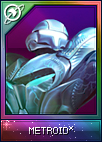
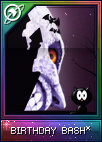
![[Image: c2a3e3697e12342630db5428be6bae6d.jpg]](https://i.pinimg.com/originals/c2/a3/e3/c2a3e3697e12342630db5428be6bae6d.jpg)
![[Image: Guilmon.jpg]](http://i248.photobucket.com/albums/gg163/rarehl/Guilmon.jpg)

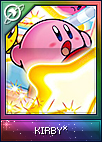
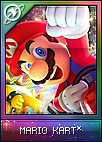
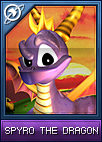

![[Image: hbCSi7H.gif]](https://i.imgur.com/hbCSi7H.gif)
